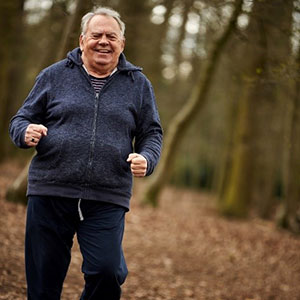Improving outcomes for people with Type 2 diabetes in Buckinghamshire remotely
 Over the past two and a half years, NHS England has made £105 million of diabetes transformation funding available to improve treatment and care for the 2.8 million adults and children diagnosed with Type 1 or Type 2 diabetes across England.
Over the past two and a half years, NHS England has made £105 million of diabetes transformation funding available to improve treatment and care for the 2.8 million adults and children diagnosed with Type 1 or Type 2 diabetes across England.
Since then, Buckinghamshire Clinical Commissioning Group (CCG) has partnered with a provider of remote structured education to increase access to diabetes care for people newly diagnosed with Type 2 diabetes. Through a patient-led, remote delivery model, attendance at diabetes structured education is on target to increase by over 400% in the area.
For Buckinghamshire CCG this has enabled:
- Improved uptake of structured education
- Improved achievement of treatment targets
- Engagement of “hard-to-reach” groups
Angela Jessop, Long Term Conditions Commissioner at Buckinghamshire CCG explained how the programme improves outcomes for people living with diabetes in Buckinghamshire.
Structured education
The remote Diabetes Support programme supports the local provider of the face-to-face structured education service by providing an alternative for patients unable, or unwilling to, attend face-to-face sessions. The programme is delivered 100% remotely, with each person assigned a personal one-to-one Diabetes Specialist Dietitian for the duration of the programme. The programme can be delivered across different mediums, with a combination of telephone and/or app-based interaction, entirely tailored to the person’s preference.
Those choosing a digital pathway for their care will interact through an app throughout the day and communicate with their personal dietitian through an instant messaging system. The convenience and accessibility of the programme means that traditionally hard to reach groups; such as working age people and men, are well represented. To date in Buckinghamshire, 68% of attenders are working age and 56% of attenders are male.
National data shows that approximately 10% of people who are offered diabetes structured education will go on to attend a programme. In contrast, 79% of people in Buckinghamshire who are offered the Diabetes Support programme attend the programme.
The programme delivers an average weight loss of 3.3kg per person, an HbA1c reduction of 10mmol/mol per person and generates a £353 in-year cost saving per person. Ensuring this programme is utilised by those who need it is critical to the success of the service. This included making the programme available to people who have been diagnosed with diabetes for several years but would benefit from more support.
Buckinghamshire CCG led on an engagement strategy to ensure anyone who could benefit from the programme was offered a place. Buckinghamshire CCG Transformation Manager, Lori Williamson, explained:
Impact: John’s story
John is 70 years old, and recently retired. He was recently diagnosed with Type 2 diabetes. The diagnosis came as a surprise to him and he was unsure what it meant and what the treatment options were. John’s GP referred him to the Diabetes Support programme to receive a programme of one-to-one dietitian support. John attended his first appointment within five days of his GP referring him, this quick response time was important to John as he felt overwhelmed by his new diagnosis. John was assigned a personal Diabetes Specialist Dietitian, who was able to tailor the programme to his requirements.
Since finishing the programme, John is thrilled with his progress and happy to report that his GP has also commented on his success on the programme. His HbA1c levels have gone from 49 mmol/mol to 41mmol/mol.
The Diabetes Support programme applies behaviour-change theory to embed long-term lifestyle changes, allowing John to continue making healthy choices beyond the end of the programme.
